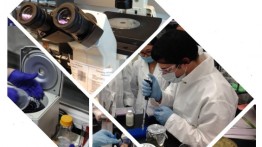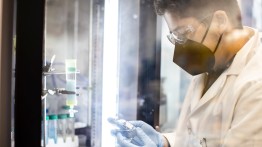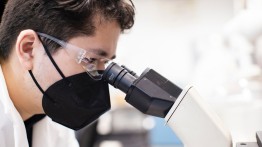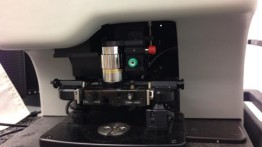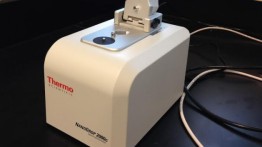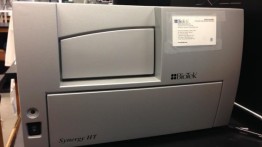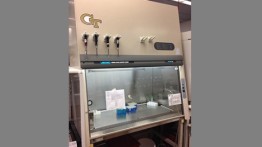Maurice Kanbar Center for Biomedical Engineering
The Kanbar Center is a 970 square feet laboratory for research and education of undergraduate and graduate students in biology and bioengineering. The Kanbar Center offers laboratory support for bioscience electives for engineering students interested in a Bioengineering Minor. The center also provides extensive laboratory training and involvement in projects in biotechnology, bioengineering and biomedical fields in research-based courses and independent studies. The center provides facilities and support for collaborative projects with other engineering laboratories and departments. Kanbar laboratory staff provide advanced level biosciences research for senior projects and Master’s thesis research in joint projects with faculty from Mechanical Engineering, Chemical Engineering, Chemistry, or any other department. Kanbar Center offers courses, facilities and projects for training and learning, but also advisory, for students interested in medicine and biotechnology.
The Kanbar Center is comprised of a biosafety-level 1 life sciences laboratory with state-of-the-art equipment for protein purification, biochemical characterization of various biomolecules, cell and tissue culture, and microscopy equipment. The center supports projects with laboratory experiences in molecular biology, genetic engineering, protein biochemistry, cell and tissue engineering, microbiology, biocompatibility, ecology and other fields of biology.
The Kanbar Center life sciences laboratory space is used for a laboratory component of electives: Biology for Engineers 1 and 2 (Bio201/202), Protein Expression, Purification and Analysis (Bio422), Science and Application of Bioengineering Technology (EID325), Synthetic Biology (EID423), and Tissue Engineering (EID327). The center is also used to provide ideas, training, supervision, and resources for research projects in Special Topics in Bioengineering (EID320) and Bioengineering Research Problem (BIO364), Senior Projects (ME393/394) and Master’s thesis research.
Master’s thesis research accomplished at the Kanbar Center in last few years include projects in biotechnology: developing of new protocols for production of medically relevant proteins, biomaterials, and purification and functional analysis of proteins from immune system modulating bacteria. Independent study projects include use of CRISPR/Cas9 based gene targeting for genetic modification of industrially important bacteria, genetic modification of the cricket gut microbiome for production of vitamins, isolation and electrochemical characterization of electrochemically active bacteria from NYC ponds for microbial fuel cells and other.
The Kanbar Center is typically staffed from 9AM-5PM on weekdays, except on school holidays. For research activities being performed outside of these hours and dates, there must be a faculty member or laboratory technician present with a valid C-14 license (Laboratory Certificate of Fitness) issued by the New York City Fire Department.
Faculty and Staff
Dr. Radmila Janjusevic
Research Scientist
radmila.janjusevic@cooper.edu
Phone: 212-353-4326
Dr. Oliver Medvedik
Adjunct Professor
oliver.medvedik@cooper.edu
Phone: 212-353-4326
Dr. David Wootton
Professor of Mechanical Engineering
david.wootton@cooper.edu
Phone: 212-353-4393

